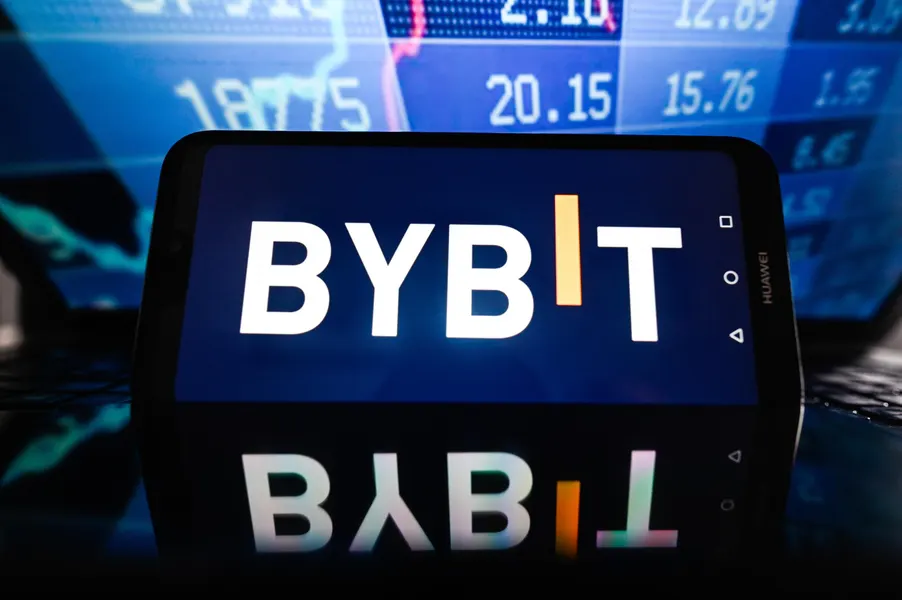Bybit Fully Recovers from $1.5 Billion Hack, Restores Asset Backing and Withdrawal Services
26.02.2025 12:01 1 min. read Alexander Stefanov
Bybit's CEO, Ben Zhou, has announced that the exchange has fully addressed the security breach that resulted in the theft of nearly $1.5 billion in Ethereum (ETH) and Lido Staked Ether (stETH) last week.
Zhou confirmed that the company has reinstated a 1:1 backing of all customer assets following the unprecedented hack.
These statements were supported by a proof-of-reserves audit conducted by blockchain security firm Hacken on February 23, 2025. The report confirmed that Bybit now holds more than 100% of the reserves needed to cover its liabilities, enhancing user and stakeholder trust.
The CEO explained that the hackers exploited an ETH transfer between Bybit’s cold and warm wallets. Blockchain investigator ZachXBT traced the hack back to the Lazarus Group, a notorious North Korean hacking organization.
Despite the significant breach, Bybit was able to manage an exceptionally high volume of withdrawal requests. Within just 10 hours of the incident, the exchange processed over 350,000 withdrawal requests, completing 99.9% of them by 1:45 AM UTC. The company now reports that all withdrawal services are functioning normally, with more than 580,000 requests successfully processed.
Additionally, Bybit has introduced a recovery bounty program, offering 10% of any recovered funds as a reward.
-
1
SoFi Returns to Crypto with Trading, Staking, and Blockchain Transfers
27.06.2025 8:00 1 min. read -
2
GENIUS Act Could Reshape Legal Battle over TerraUSD and LUNA Tokens
30.06.2025 9:00 1 min. read -
3
Whales Buy the Dip as Retail Panics: This Week in Crypto
29.06.2025 14:00 3 min. read -
4
History Shows War Panic Selling Hurts Crypto Traders
28.06.2025 18:30 3 min. read -
5
Ripple Faces Legal Setback as Court Rejects Bid to Ease Penalties
26.06.2025 16:54 1 min. read
Kazakhstan May Invest Gold Reserves in Crypto Sector
Kazakhstan is considering allocating a portion of its gold and foreign currency reserves, along with National Fund assets, into crypto-related investments.
Grayscale Confidentially Files for New SEC-registered Offering Amid Growing Crypto Market demand
Grayscale Investments announced today that it has confidentially submitted a draft registration statement on Form S-1 to the U.S.
Here is How to Read the Crypto Fear and Greed Index
In the volatile world of cryptocurrency, investor psychology is one of the most powerful forces behind price movement.
Bank of England Governor Warns Against Stablecoins, Backs Tokenized Deposits Instead
Bank of England Governor Andrew Bailey has voiced strong concerns about the rising push for stablecoin adoption, calling on banks to steer clear of issuing their own digital currencies.
-
1
SoFi Returns to Crypto with Trading, Staking, and Blockchain Transfers
27.06.2025 8:00 1 min. read -
2
GENIUS Act Could Reshape Legal Battle over TerraUSD and LUNA Tokens
30.06.2025 9:00 1 min. read -
3
Whales Buy the Dip as Retail Panics: This Week in Crypto
29.06.2025 14:00 3 min. read -
4
History Shows War Panic Selling Hurts Crypto Traders
28.06.2025 18:30 3 min. read -
5
Ripple Faces Legal Setback as Court Rejects Bid to Ease Penalties
26.06.2025 16:54 1 min. read


